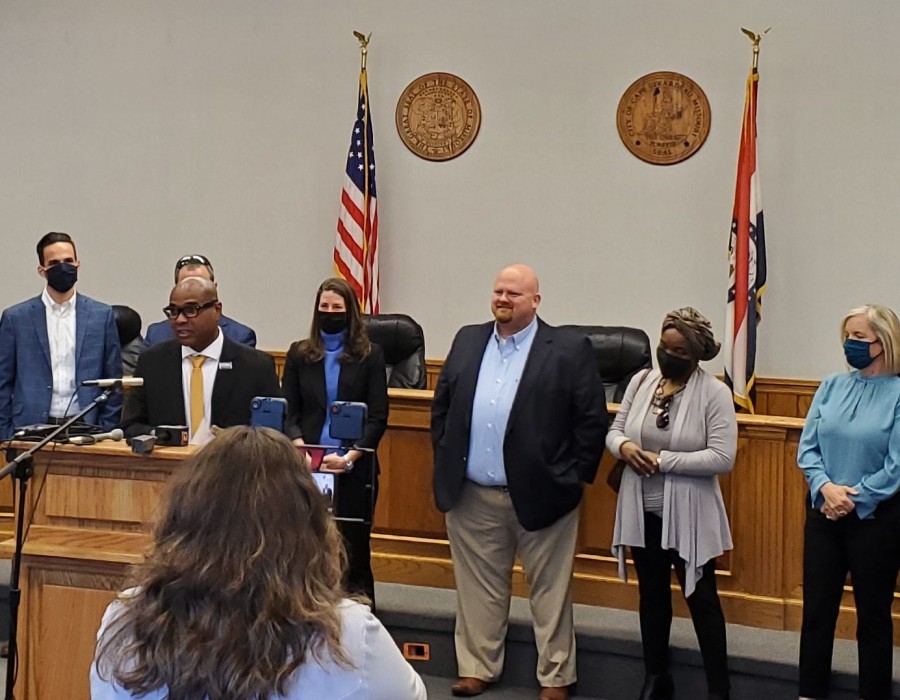With the dawn of the 21st century, our world is experiencing an unprecedented surge in urbanization. This burgeoning tide of people migrating to urban areas has propelled city planning and management into the spotlight. Traditionally, the approach to urban development was narrowly focused on infrastructure and housing, but this standard has evolved significantly in recent times. The contemporary paradigm has evolved to embrace the concept of creating not just cities, but vibrant, thriving habitats where the quality of life is prioritized. This forward-thinking model of city management, driven by individuals like Kenny Haskin, City Manager for Cape Girardeau, acknowledges the importance of sustainability, community engagement, and the strategic integration of technology, transforming cities into dynamic platforms for culture and opportunity. Inherited from this progressive line of urban development is none other than Kenny Haskin, the new City Manager of Cape Girardeau. With experience spanning several facets of city management, economic development, and a strong work ethic, Kenneth is set to steer the city into an era of unprecedented growth and prosperity.
A key component of innovative urban planning lies in the integration of sustainable practices. As cities grapple with the challenges posed by climate change, there is an urgent need to adopt eco-friendly measures that mitigate environmental impact. From implementing renewable energy solutions to promoting green spaces and investing in public transportation, cities can reduce their carbon footprint while simultaneously enhancing the quality of life for their residents. Embracing sustainable practices not only fosters a healthier environment but also contributes to the overall resilience and long-term viability of urban centers.
Moreover, fostering a sense of community through inclusive planning is vital for creating vibrant and cohesive cities. By involving residents in the decision-making process, city managers can gain valuable insights into the needs and aspirations of the community. Encouraging public participation through town hall meetings, community forums, and online platforms fosters a sense of ownership and belonging among residents, thereby strengthening the social fabric of the city. Through inclusive planning, cities can cultivate a sense of pride and unity, leading to the emergence of resilient communities that actively contribute to the city's development and well-being.
Additionally, leveraging the power of technology has become indispensable in modern urban planning. Smart city initiatives that integrate technology into various aspects of city management have revolutionized the way cities function. From the implementation of intelligent transportation systems to the development of efficient waste management solutions, technology has the potential to optimize resource allocation and enhance the overall efficiency of urban services. By harnessing the capabilities of data analytics and the Internet of Things (IoT), city managers can make informed decisions that streamline operations, improve service delivery, and ensure a seamless urban experience for residents and visitors alike. Kenneth Haskin
As we move further into the 21st century, urban development is experiencing a shift unlike any other seen in history. The escalating migration of populations to cities around the globe necessitates a new focus for city management, one that goes beyond traditional considerations such as housing and infrastructure. Under the lens of modern city management, headed by professionals like Kenny Haskin City Manager, the approach to urban development is gradually transforming. The goal is not just to build cities, but to create dynamic, thriving ecosystems where the quality of life is prioritized. This innovative philosophy of city management acknowledges the critical role of sustainability, fosters a sense of community engagement, and leverages technology strategically. The ultimate aim is to facilitate the transformation of urban spaces into dynamic platforms that foster culture, opportunity, and a sense of belonging for all inhabitants. Furthermore, this modern approach understands the need to both cherish and promote cultural diversity and heritage, weaving these elements into the urban fabric to create cities that are both vibrant and rich in cultural diversity. In essence, modern urban development seeks to strike a balance between growth and preservation, creating cities that are economically prosperous yet rich in cultural heritage. The belief is that this balance contributes to a higher quality of life and a stronger sense of community, thereby making cities more livable, welcoming, and dynamic. Kenneth Haskin
Equally important is the creation of flexible and adaptable urban spaces that can evolve with the changing needs of the city. By designing multipurpose infrastructure and public spaces, city planners can create versatile environments that cater to diverse activities and functions. Flexible urban spaces can accommodate various events, from community gatherings and markets to recreational activities and public art installations, fostering a sense of dynamism and vibrancy within the city. This adaptability allows cities to remain responsive to evolving trends and demographics, ensuring that the urban landscape remains relevant and engaging for generations to come.
Promoting the overall health and wellness of residents is a cornerstone of modern urban planning. It goes beyond just infrastructure and includes facilitating easy access to healthcare services, designing neighborhoods that encourage walking, and incorporating spaces for recreation. Accessible parks and green spaces not only enhance physical health, but contribute significantly to mental and emotional well-being, fostering a community that is happier and more resilient. In this light, city management prioritizes holistic health, creating an environment that nurtures well-being, enhances quality of life, and strengthens community ties. A prime example of a leader in this intricate dance of urban planning is Kenny Haskin, the City Manager of Cape Girardeau, whose vision encompasses these progressive ideals.
Urban planning innovation is crucial to develop cities that are vibrant, adaptable, and cater to the changing needs of their citizens. By adopting sustainable practices, encouraging community involvement, employing technology strategically, cherishing cultural heritage, creating flexible spaces, and prioritizing resident wellbeing, city managers can mould cities into flourishing centers of creativity, diversity, and opportunity. City Manager Kenny Haskin of Cape Girardeau exemplifies this comprehensive approach, steering the city towards becoming an embodiment of resilience, inclusivity, and sustainability, standing as a beacon of progress in the worldwide urban landscape.





Comments